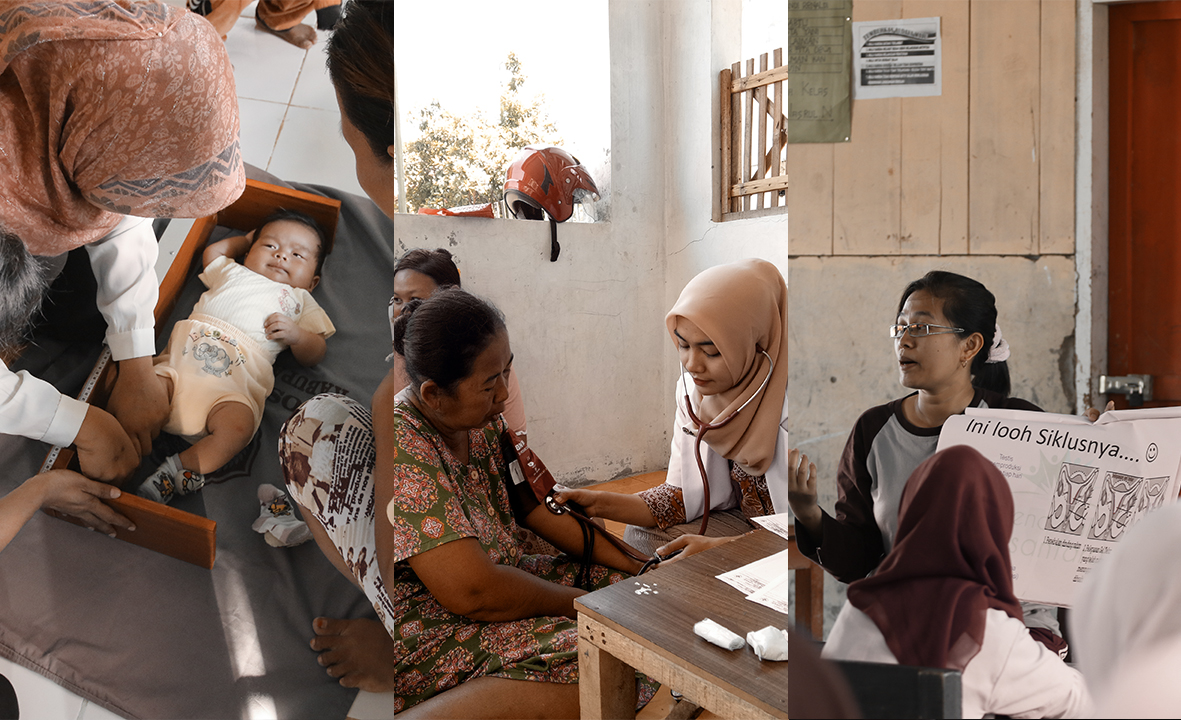
News
CISDI's Views on the Geneva Consensus
CISDI Secretariat • 1 Nov 2020
Jakarta, 2 November 2020 - The Center for Indonesia's Strategic Development Initiatives (CISDI) believes that protecting the right to health is a success of sustainable development, that includes sexual and reproductive health services. It is one of the Sustainable Development Goals (SDGs) that targets health and well-being for all, as well as gender equality.
Indonesia has ratified two global agreements that guarantee the fulfillment of human and women's rights by passing Law Number 39 of 1999 concerning Human Rights and Law Number 7 of 1984 concerning the Elimination of All Forms of Discrimination Against Women (CEDAW). Both are manifestations of the state's commitment on human rights, including the right to physical, mental, and social well-being. The World Health Organization (WHO) also defines health as the fulfillment of the highest health standards regardless of gender, race, religion, political beliefs, economic or social conditions.
On Thursday, 22 October 2020, the Government of Indonesia together with representatives of 31 countries such as the United States, Brazil, Egypt and Uganda (or 19% of the total WHO member countries) virtually signed the Geneva Consensus, which seems protecting women's right to health and makes the family a supporting pillar for achieving health.
However, it actually limits women's rights to gain access to sexual and reproductive health as a whole, as well as to determine authority over their bodies and their future through the prohibition of abortion as a form of sexual and reproductive health services. Meanwhile, it has been guaranteed by the SDGs, the Universal Declaration of Rights. Human Rights, and CEDAW.
"Currently, the maternal mortality rate in Indonesia is still the highest in ASEAN, around 305/100,000 births (Riskerdas (basic health research), 2018). Unsafe abortion is one of the reasons for the high maternal mortality rate due to unwanted pregnancies, as well as the lack of access and information to sexual and reproductive health services. Other countries in Southeast Asia including Malaysia, Singapore and Thailand agree that women's right to get access to safe abortion as a form of sexual and reproductive health services is in line with the Universal Declaration of Human Rights, CEDAW, and SDGs. WHO's current position fully supports CEDAW recommendations to provide access to sexual and reproductive health without discrimination which requires the full role of the government to build an enabling environment and civil society as important development stakeholders. The current pandemic conditions have also caused sexual violence, domestic violence and gender-based violence to be much bigger than before. Therefore, access to sexual and reproductive health services must be as wide open as possible for all, especially vulnerable groups," said Diah Saminarsih, Senior Advisor on Gender and Youth to the WHO DG.
CEDAW Recommendation No. 24: Article 12 allows abortion in certain situations such as cases of rape, incest, threats to the life and/or health of the mother, or severe harm to the fetus. The international community, including Indonesia, has agreed to provide women with access to quality post-abortion services, especially in cases of complications that lead to unsafe abortions. CEDAW also recommends member states to eliminate penalties for women who have abortions. The government's move to agree on the Geneva Consensus is counterproductive to CEDAW, the Universal Declaration of Human Rights, and the SDGs.
Olivia Herlinda, Director of Policy at CISDI, added, “Currently, Indonesia is considered weak in fulfilling human rights. In addition to the government's failure in handling Covid-19, Indonesia's position in agreeing to the Geneva Consensus has the potential to become a dark note on the weak enforcement of the right to health, especially for women in Indonesia. CISDI encourages the government to study further and listen to scientific evidence and the needs of women's groups, and is open to dialogue with representatives of civil society who work directly in the field of sexual and reproductive health in order to achieve health for all.”
.png)